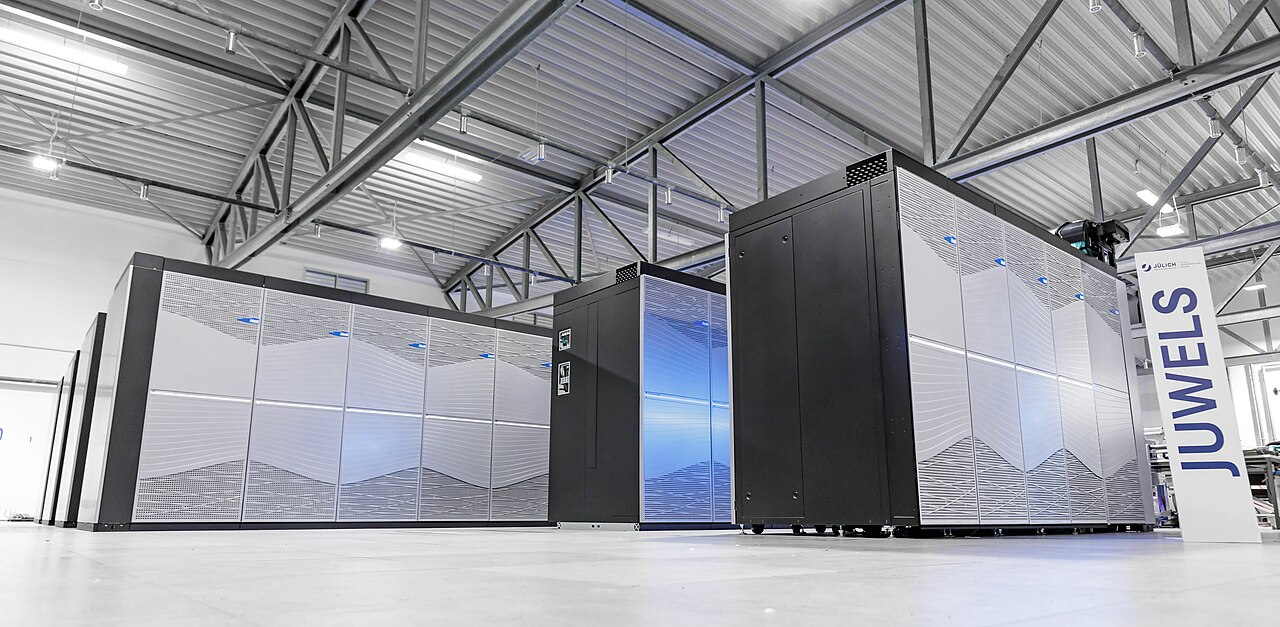
The goal is to be among the top 25 innovators in the world and among the top 10 innovators in Europe.Continue reading

Hungary has taken an important step in the field of supercomputers: a cooperation agreement has been signed with the Jülich Supercomputing Center that could open up greater opportunities for the application of artificial intelligence (AI), as reported on Wednesday’s M1 news channel program on World Artificial Intelligence Day.
Artificial intelligence is increasingly permeating our lives, and the goal is to increase Hungary’s GDP by 15 percent by 2030. Roland Jakab, CEO of the HUN-REN Hungarian Research Network and President of the Artificial Intelligence Coalition, emphasized that the development in the world is “dizzying” and it is important for Hungary to keep pace with this trend.
This goal is also served by Hungary’s joint application with the Jülich Supercomputing Center for the EU AI Factory Antenna program. He said that a few days ago in Jülich, Germany, Europe’s largest supercomputing center, he and László Palkovics, the government commissioner responsible for artificial intelligence, signed an agreement that
Hungarian researchers and application developers will also be able to use the 800 petaflop/s capacity as part of a joint application.
Jakab said that the goal of becoming not only users but also developers of artificial intelligence in Europe is now within reach.

Jakab Roland. Photo: HUN-REN
On Kossuth Radio’s Good Morning, Hungary! program, the HUN-REN CEO emphasized that Hungary could become a key player in the European artificial intelligence ecosystem. On the program, Jakab said that Hungary has taken important steps recently by creating its artificial intelligence strategy. This strategy includes many measures that encourage the development of applications, the launch of research programs, and the widest possible adaptation of AI in the economy, he explained.
He highlighted that in recent months, the strategy, in place since 2020, has been reviewed under the leadership of the government commissioner responsible for artificial intelligence, and the main priorities have been defined in terms of where this technology should have an impact. The spread of technology must be supported in Hungary so that as many companies as possible recognize its potential, as artificial intelligence extends human capabilities, he added.
Many products and services can be developed with it, all of which can be integrated into the economy and have a ripple effect and stimulate the economy,
the CEO noted.
He mentioned that
an agreement had recently been signed with the EU’s HPC (High Performance Computing) program initiative for Hungary to build a new supercomputer in 2025-26, with EU support and co-financing.
This will be the 20 petaflop/s supercomputer named Levente, which will begin operating in 2027.
Speaking about the dangers of new technology, he noted that people need to develop a natural defense mechanism and a critical approach to certain content. We need to research this technology to understand how it works and how it can benefit people, he said, emphasizing that we need to talk about it as much as possible, demonstrate its applications, and launch training programs. Hungary’s renewable artificial intelligence strategy proposes this and a series of measures, he said.
With this, we will take a big step forward so that Hungary is not just a follower of this technology, but a shaper and formative force, giving birth to innovations that will then spread throughout the world,
Jakab emphasized.
Via MTI, Featured image: Wikipedia